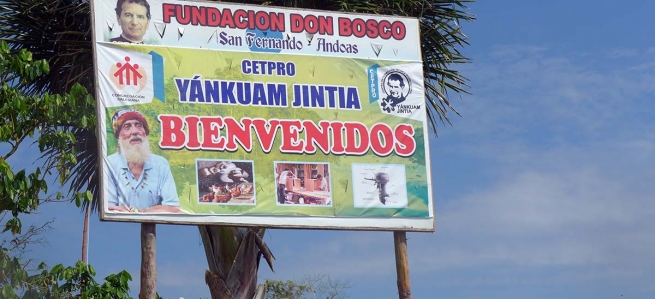Among those who attended the opening ceremony were Fr Raúl Acuña, Executive Director of the Fundación Don Bosco, Lourdes Liendo, Manager of the Project Office of Fundación Don Bosco, Fr Diego Clavijo, a Salesian missionary, Bro. José Gallego, a Salesian Brother who is the new director of CETPRO "Yankuam Jintia", which is run with the collaboration of the Salesian Cooperators of Germany.
The great challenge facing the Salesians in Peru is to create opportunities for young people leaving secondary school who, at the end of their studies, are unable to pursue further educational training. Unfortunately, the context in which they find themselves does not offer access to a quality education. The Salesians wish to help improve the quality of life of this indigenous community, providing support and training in various fields of work.
Over 60 teenagers will benefit from this new Salesian work, which seeks to improve the living conditions of indigenous families of the Achuar ethnic groups, Kandozi, Meztizos and Quechua. The young people will be trained to be mechanics for outboard engines, as well as in carpentry, agriculture and animal husbandry. They will then be able to contribute to the development of their communities and to create resources through the provision of services to third parties.
https://www.infoans.org/en/sections/news/item/1746-peru-inauguration-of-the-yankuam-jintia-centre-for-intercultural-education#sigProIde3b9ed280c
The young people will reside in the Salesian boarding school and attend the four-month training modules of the Intercultural Education Centre, together with their instructors and programme managers. The training centre and the boarding section have solar panels for energy.
The young people will be selected by the authorities or representatives of each ethnic group according to certain criteria which include: place of origin, identification with and respect for the values and the customs of the community and good school grades. The Salesians will see to it that the selections meet the criteria.
For the first cycle each ethnic group will present 21 young people, 7 for each area of specialization. There are three ethnic groups so 63 young people will benefit in each cycle and 126 per year.



